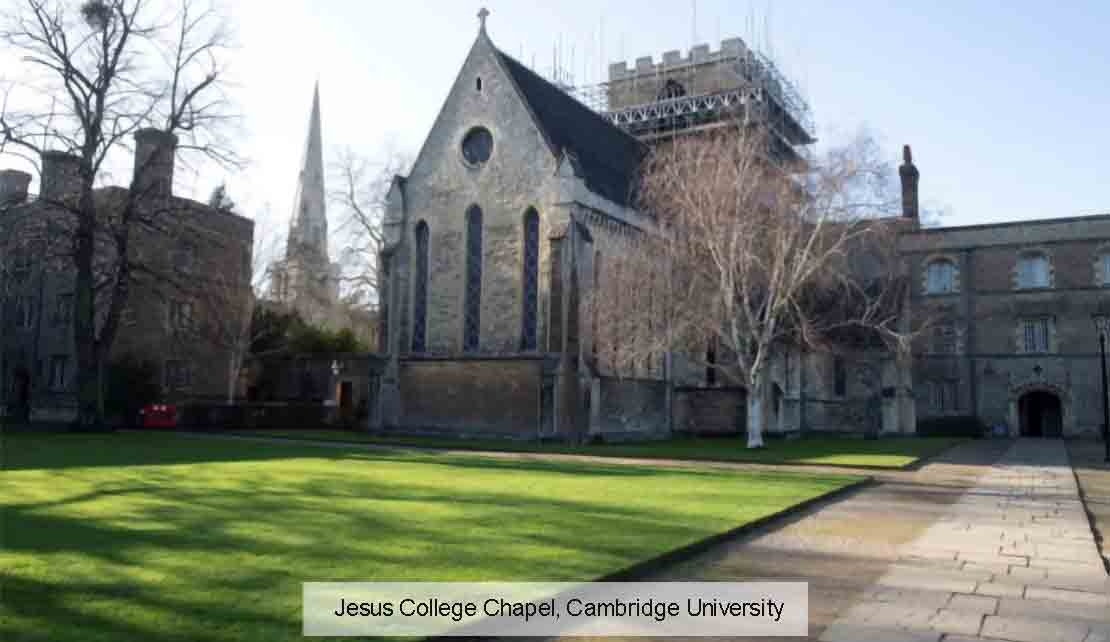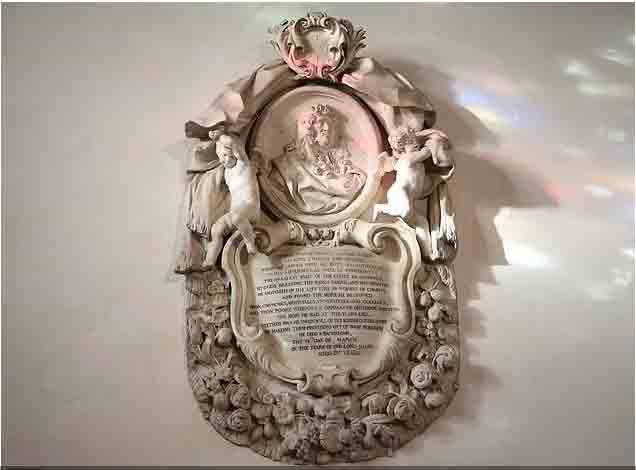BRITAIN | Slave Trader Memorial Hearing begins at Jesus College

LONDON, England, February 2, 2022 - Today marked the first of three days of hearing by a consistory court in relation to the application for the removal of a memorial to one of the benefactors of Jesus College, Tobias Rustat which is prominently mounted on a wall in the chapel of the Cambridge University College.
Jesus College applied to church authorities to remove a memorial to Tobias Rustat from a prominent position on the west wall of its Grade I-listed college chapel, because Rustat had “had financial and other involvement in the Royal African Company (RAC), a slave trading company, over a substantial period including at the time when he donated to the college”.
The hearing for the consistory court (an ecclesiastical court dealing with matters of law relating to the church) which is expected to last until Friday, is taking place in the college chapel in Cambridge, in the shadow of the Rustat memorial.

The lawyer representing Jesus College, Mark Hill, QC, told the court on Wednesday, that what it was being asked to decide was whether the memorial should remain in its current location or should be removed to a new permanent site elsewhere in the college where it would be a “significant and accessible exhibit”.
Hill further told the court that the hearing had “nothing to do with erasing, cancelling or in some way nullifying the existence and the name of Rustat”.
Dean of the chapel, the Rev Mr James Crockford, told the hearing that the marble memorial acted as a barrier to worship and participation in chapel life and that some undergraduates were “disturbed and upset” as it appeared to “celebrate” the man and his financial dealings, and warned that if it remained in the chapel they would be less likely to participate in the life of the chapel.
The attorney for the persons opposing the removal of the Rustat memorial, Justin Gau questioned the Dean in relation to several emails from several undergraduates which said: “It’s totally wrong for the statue of someone who was so heavily involved in the horrific crimes of slavery to be glorified in the heart of our community.”
Gau also challenged the characterisation of Rustat in the emails noting that it was “not true” that Rustat had amassed “much of his wealth from the RAC '' as had been claimed. In reply to other email claims of clear demonstration that Rustat “was a very active slave trader”, Gau said there was “no demonstration in any document that Tobias Rustat was any sort of slave trader”.
Master of Jesus College and the first black master of any Oxbridge college, Sonita Alleyne, responding to Gau’s suggestion that Rustat’s history should be “contextualised” through an explanatory plaque in the chapel, said:
“There is not enough space on the wall … how big would a plaque have to be? How will we fit the stories of all the people who were enslaved and who died in the process?”
She said the chapel was “our sanctified space, our pastoral space … I have great faith and I’m here today because I have great faith that we are in an age where equality is paramount.”
Gau said Rustat had been a “generous benefactor” of the college, and that “despite his very small involvement in the slave trade” there was now a black female Master of the college. Alleyne said: “Which murder, which lynching … how much sin do you need to have before you come off the wall?
In 1671, Rustat donated £2,000 to Jesus College– a huge sum at the time – to fund scholarships for the children of Anglican priests.
The move by Jesus College to shift the memorial from the Chapel follows an inquiry by a legacy of slavery working party set up to review the college’s historical links to enslavement and its long term impact.
-30-
